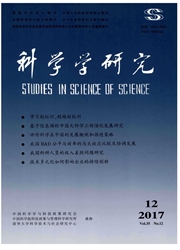

 中文摘要:
中文摘要:
以我国318家制造业上市公司1999—2008年期间的纵向数据,考察国际化、多元化与企业绩效之间的关系。研究表明国际化程度与企业绩效之间存在着S型曲线关系。随着企业国际化程度的提高,国际化对绩效最初具有负影响,然后变为正影响,最后又转变为负影响。多元化负向调节国际化与绩效之间的曲线关系。在低度多元化企业,国际化与绩效之间存在着显著的S型曲线关系;在中度多元化企业,国际化与绩效之间存在着U型曲线关系;在高度多元化企业,国际化与绩效之间的关系变为略微向上倾斜的平坦直线。这表明随着多元化程度的提高,国际化对绩效的影响逐渐减弱。从整体上看,国际化程度与我国制造业企业绩效之间的S型曲线在起始阶段显著向下倾斜,这表明实施国际化战略对于我国许多制造业企业来说绝非易事,需要企业以长远的眼光看待国际化,并在国际化战略实施过程中付出持之以恒的努力。
 英文摘要:
英文摘要:
Data on 318 Chinese manufacturing firms over 10 years show a horizontal S - shaped relationship between internationalization and firm performance. At high and low levels of internationalization, the extent of internationalization is negatively associated with firm performance, while at moderate level of internationalization, greater internationalization is accompanied by higher performance. Product diversification is negatively moderating the relationship between internationalization and performance. As product diversification increa- ses, the relationship between internationalization and performance is changing from horizontal S - shaped curve in low diversified firms to U - shaped curve in moderately diversified firms and eventually to horizontal line in highly diversified firms. The initial stage of the S - shaped curve of internationalization and performance declines tremendously in Chinese manufacturing firms as a whole, therefore it is by no means easy for Chinese firms' internationalization. Our findings do suggest that managers need to take a long - term view of in- ternationalization and give commitment to internationalization.
 同期刊论文项目
同期刊论文项目
 同项目期刊论文
同项目期刊论文
 期刊信息
期刊信息
